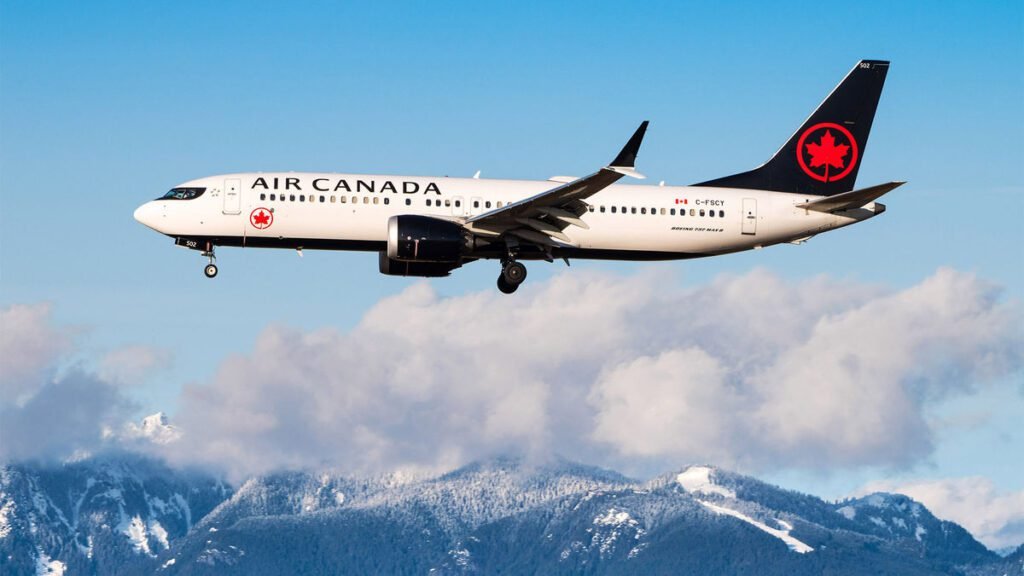TORONTO (AP) — In a significant move, the Canadian government has mandated that Air Canada and its striking flight attendants return to work and enter into arbitration, following a work stoppage that disrupted travel for over 100,000 passengers worldwide during the peak summer season.
Federal jobs minister Patty Hajdu highlighted the urgency of the situation, noting that with unprecedented U.S. tariffs impacting the economy, it was crucial to resolve the labor dispute swiftly. This decision means the approximately 10,000 flight attendants will soon be back on duty.
The government’s intervention occurred just hours after the flight attendants initiated the strike. Hajdu stated, “The talks broke down, and it’s clear that the parties need help from an arbitrator to resolve key issues.”
Service resumption might take several days, as per Hajdu’s announcement, since the process is now in the hands of the Canada Industrial Relations Board. Wesley Lesosky, president of the Air Canada component of the Canadian Union of Public Employees, criticized the government for what he described as an infringement on the flight attendants’ constitutional right to strike, lamenting Hajdu’s swift intervention.
“By stepping in so quickly, the Liberal government is rewarding Air Canada’s refusal to negotiate in good faith,” Lesosky remarked.
While Air Canada did not provide immediate comments regarding the situation on Saturday, Chief Operating Officer Mark Nasr indicated that it might take up to a week for flight operations to achieve full normalization, suggesting ongoing disruptions in the interim.
The disruption has considerably impacted Canada’s largest airline, affecting approximately 130,000 customers daily and potentially leaving around 25,000 Canadians stranded. Air Canada typically conducts around 700 flights each day, and aviation analytics firm Cirium reported a total of 671 flight cancellations by Saturday afternoon, which followed 199 cancellations on Friday, in addition to 96 flights already suspended for Sunday.
Hajdu instructed the Canada Industrial Relations Board to prolong the current collective agreement until a new one is finalized through arbitration. “Canadians depend on air travel, and its significance should not be underestimated,” she added.
Union spokesperson Hugh Pouliot remained uncertain about when flight attendants would officially return to work, stating, “We’re maintaining our presence on the picket lines until further notice.”
Escalating Labor Dispute
The dispute intensified late Friday when the union rejected Air Canada’s proposition for government-directed arbitration, which involves a neutral third-party mediator resolving the contract terms.
Flight attendants commenced their strike around 1 a.m. Eastern time on Saturday, shortly before Air Canada announced plans to lock them out of airports, further escalating tensions.
Ian Lee, an associate professor at Carleton University’s Sprott School of Business, noted that government interventions in transportation strikes have a long precedent, with such actions taken 45 times since 1950 due to Canadians’ heavy reliance on air travel.
In a similar vein, last year, the Canadian government compelled the nation’s two principal railroads to enter arbitration during a labor dispute, a move that a rail workers’ union is now contesting in court, arguing it diminishes their negotiating power.
The Business Council of Canada and the Canadian Chamber of Commerce have both advocated for binding arbitration in this scenario as well. Matthew Holmes, Executive Vice President of the Chamber of Commerce, stated, “With valuable cargo grounded and passengers in distress, the government made a prudent decision to refer both parties to binding arbitration.” He highlighted the potential impact on nearly a million Canadians and international visitors if Air Canada took a week to regain full operational status.
Despite the government’s actions, Hajdu asserted that her administration is not anti-union, emphasizing the evident impasse between the two parties.
Passengers Facing Uncertainty
Passengers impacted by the strike can request full refunds through the airline’s website or mobile app, as Air Canada announced. The airline will also explore alternative travel arrangements with other domestic and international carriers where feasible, although immediate rebooking could be challenging due to full flights from other airlines during the summer travel peak.
Travelers have voiced frustration over communication (or lack thereof) from Air Canada concerning the flight disruptions. Jean-Nicolas Reyt, 42, expressed his worry as he awaited news about his flight from France to Montreal, stating, “The lack of information adds to the stress. I received only one email warning me about potential disruptions.”
Jennifer MacDonald from Halifax echoed similar sentiments, describing her family’s ordeal in securing travel for her brother and cousin after part of their Air Canada itinerary was canceled, forcing them to shoulder unexpected expenses and seek alternative arrangements.
Disparities in Negotiations
Both Air Canada and the Canadian Union of Public Employees have been negotiating for close to eight months without finalizing an agreement, with significant differences in salary and the unpaid duties of flight attendants when flights are inactive leading to the deadlock. Natasha Stea, an Air Canada flight attendant and local union president, lamented, “We are heartbroken for our passengers, but we cannot work for free.”
With flight attendants predominately female—around 70%—Stea pointed out the stark contrast in treatment between flight attendants and pilots, who are predominantly male and received substantial raises the previous year.
Air Canada’s latest proposal included a 38% increase in total compensation over four years, asserting it would have positioned flight attendants as the highest-paid in Canada. However, the union believes that the proposed 8% salary increase in the first year fails to address the inflationary pressures faced by workers.


